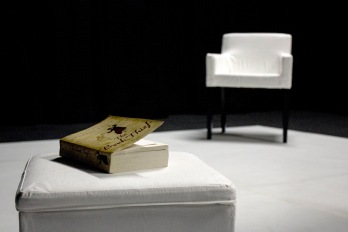The Memories of Fiction project came to an end of its funded period this summer, so it seems time to reflect on some of its highlights, and to look forward to what’s next.
One of the most delightful aspects of the project was the participation of many others beyond the project team, without whom it could not have taken shape in the ways it has. We want to thank again the seven reading groups who welcomed and talked to us (at Balham, Battersea, Putney, and Roehampton libraries), and especially all those who took part in the interviews. The archive provides a wonderful wealth of reflections on reading and we are sure will continue to be of interest in years to come.
We are also very grateful to the advisory group, who contributed to the project throughout. Martyn Lyons kicked off with a seminar about the Australian Readers Remember project and ‘why we (still) need need an oral history of reading’, which provided an ideal launch. Other excellent talks were given by Shafquat Towheed, Gill Partington, and Alison Waller (podcasts here), and also at the conference organised jointly by the Oral History Society and Memories of Fiction, ‘Beyond Text in the Digital Age?’, by Mary Grover and her Reading Sheffield team. The librarians and book group facilitators Ferelith Hordon and Alison Barton also contributed brilliantly to talks about memories of children’s books, and libraries, at Putney and Balham libraries, as well as being interviewed for the project.
We are continuing to work on publications. As well as individual articles, our proposal was accepted for a Themed Section of Participations: Journal of Audience and Reception Studies, to consist of approximately 8-10 articles about using interviews to investigate reading, which will be out next Spring. Literary scholars, and historians of books and reading are increasingly using oral history and other kinds of interviews, and having received many excellent proposals in response to the Call for Papers, we are optimistic that this issue of Participations will be a valuable resource for considering the methodologies of interviewing and its great potential for research in the field.

As well as informing the project’s talks and publications, the interviews provided the basis for the theatre production, The Living Library. This wonderful production, at London’s Omnibus Theatre in May 2018, consisted of a series of sound installations, dance, storytelling, and audience participation events. For each showing, the library first opened to allow audience members to browse the sound installations. These included a collection of children’s books, including those by Enid Blyton (most often remembered by the people we interviewed), which when opened played extracts of readers’ memories of those books. At another installation headphones allowed audience members to listen to people talking about the importance of libraries in their lives, while browsing library catalogue cards and using a library stamp to mark the titles they remembered reading. After around twenty minutes browsing in that Living Library area, the audience was ushered through to the theatre space, where, first, a dancer enacted relationships with books (such as escaping through reading) to the sound of interview monologues that gradually turned into music. It was moving to hear two stories in particular, that testified to the power of reading, in one case making it possible to survive difficult times. Finally, moving on from the individual relationships with books, the audience gathered in groups to ask each other questions (provided as prompts) over tea and biscuits, recalling reading groups and the interview situation itself. The project’s research informed the production through the interviews, and also through key themes, including the importance of reading and libraries in peoples’ lives (also reflected for example in a post for the Libraries Taskforce), how reading is remembered, and how reading is a social as well as a private activity.
The project’s research informed the production through the interviews, and also through key themes, including the importance of reading and libraries in peoples’ lives (also reflected for example in a post for the Libraries Taskforce), how reading is remembered, and how reading is a social as well as a private activity.
I am now submitting a funding bid to the AHRC for a follow-on project, ‘Living Libraries’. If the project is funded, it will create oral histories at five libraries across England, archived by National Life Stories at the British Library; further Living Library installations and performances; and an audio documentary aimed at BBC radio. One of the main aims of the project is to increase public awareness of the value of libraries and to improve understanding of recent changes in library provision.
So I am pleased to report that Memories of Fiction is continuing in various forms, including publications and hopefully ‘Living Libraries’.




Reading Sheffield team members have really enjoyed participating in some of your projects, Shelley. What varied and rich activities you have inspired. Very best wishes for the future and do keep us in touch with what happens next.
Thank you Mary and for all your support. I’m very keen to keep in touch with your wonderful Reading Sheffield project too.